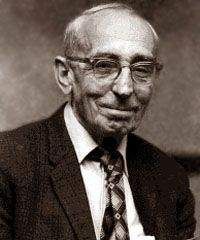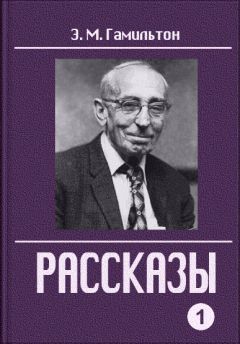Пользователь - o 3b3e7475144cf77c
ground and await ceremonies which did not begin until eight in the evening. By that time
there were a million or a million and a half in the crowd, believed to be the greatest number
ever gathered in one place. Hitler and Hindenburg drove side by side, the first time that had
happened. They passed along Friedrichstrasse, packed to the curb with shouting masses, and
hung with streamers reading: "For German Socialism," and "Honor the Worker." In front of
the speaker's platform stood the new Chancellor, looking over a vast sea of faces. He stood under
the spotlight, giving the Nazi salute over and over, and when at last he spoke, the amplifiers
carried his voice to every part of the airfield, and wireless and cables carried it over the world.
The new Chancellor's message was that "the German people must learn to know one another
again." The divisions within Germany had been invented "by human madness," and could be
remedied "by human wisdom." Hitler ordained that from now on the First of May should be a
day of universal giving of hands, and that its motto was to be: "Honor work and have respect
for the worker." He told the Germans what they wanted most of all to hear: "You are not a
second-rate nation, but are strong if you wish to be strong." He became devout, and prayed:
"O Lord, help Thou our fight for liberty!"
Nothing could have been more eloquent, nothing nobler. Did Adi wink to his journalist and
say: "Well, Juppchen, we got away with it," or some German equivalent for that slang? At any
rate, on the following morning the labor unions of Germany, representing four million workers
and having annual incomes of nearly two hundred million marks, were wiped out at one single
stroke. The agents of the job were so-called "action committees" of the Shop-Cell
Organization, the Nazi group which had carried on their propaganda in the unions. Armed
gangs appeared at the headquarters of all the unions, arrested officials and threw them into
concentration camps. Their funds were confiscated, their newspapers suppressed, their editors
jailed, their banks closed; and there was no resistance. The Socialists had insisted upon
waiting until the Nazis did something "illegal"; and here it was.
"What can we do?" wrote Freddi to Lanny, in an unsigned letter written on a typewriter—
for such a letter might well have cost him his life. "Our friends hold little meetings in their
homes, but they have no arms, and the rank and file are demoralized by the cowardice of their
leaders. The rumor is that the co-operatives are to be confiscated also. There is to be a new
organization called the 'German Labor Front,' to be directed by Robert Ley, the drunken
braggart who ordered these raids. I suppose the papers in Paris will have published his
manifesto, in which he says: 'No, workers, your institutions are sacred and inviolable to us
National Socialists.' Can anyone imagine such hypocrisy? Have words lost all meaning?
"Do not answer this letter and write us nothing but harmless things, for our mail is pretty
certain to be watched. We have to ask our relatives abroad not to attend any political meetings
for the present. The reason for this is clear."
An agonizing thing to Hansi and Bess, to have to sit with folded hands while this horror was
going on. But the Nazis had made plain that they were going to revive the ancient barbarian
custom of punishing innocent members of a family in order to intimidate the guilty ones. A
man doesn't make quite such a good anti-Nazi fighter when he knows that he may be causing
his wife and children, his parents, his brothers and sisters, to be thrown into concentration
camps and tortured. Hansi had no choice but to cancel engagements he had made to play at
concerts for the benefit of refugees.
"Wait at least until the family is out of Germany," pleaded Beauty; and the young Reds
asked their consciences: "What then?" Did they have the right to go off on a pleasure yacht
while friends and comrades were suffering agonies? On the other hand, what about Papa's
need of rest? The sense of family solidarity is strong among the Jews. "Honor thy father and
thy mother: that thy days may be long upon the land which the Lord thy God giveth thee." The
Lord in His wisdom had seen fit to take away the land, but the commandment still stood,
and Hansi thought of his father, who had given him the best of everything in the world, and now
would surely get no rest if his oldest son should declare war upon the Nazis. Also, there was
the mother, who had lived for her family and hardly had a thought of any other happiness.
Was she to be kept in terror from this time on?
"What do you think, Lanny?" asked the son of ancient Judea who wanted to be artist and
reformer at the same time. Lanny was moved to reveal to him the scheme which was cooking
in his mind for the entrapment of Johannes and the harnessing of his money. Hansi was
greatly pleased; this would put his conscience at rest and he could go on with his violin
studies. But Bess, the tough-minded one, remarked: "It'll be just one more liberal magazine."
"You can have a Red section, and put in your comments," replied Lanny, with a grin.
"It would break up the family," declared the granddaughter of the Puritans.
IV
Johannes wrote that he had got passports for his party, and set the date for the yacht to
arrive at Calais. Thence they would proceed to Ramsgate, run up to London for a few days, and
perhaps visit the Pomeroy-Nielsons—for this was going to be a pleasure trip, with time to do
anything that took anybody's fancy. "We have all earned a vacation," said the letter. Lanny
reflected that this might apply to Johannes Robin—but did it apply to Mr. Irma Barnes?
He wrote in answer: "Emily Chattersworth has arrived at Les Forêts, and Hansi is to give her
a concert with a very fine program. Why don't you and the family come at once and have a
few days in Paris? We are extremely anxious to see you. The spring Salon is the most
interesting I have seen in years. Zoltan is here and will sell you some fine pictures. Zaharoff is at
Balincourt, and Madame is out there with him; I will take you and you can have a seance, and
perhaps meet once more the spirits of your deceased uncles. There are other pleasures I might
suggest, and other reasons I might give why we are so very impatient to see you."
Johannes replied, with a smile between the lines: "Your invitation is appreciated, but please
explain to the spirits of my uncles that I still have important matters which must be cleared
up. I am rendering services to some influential persons, and this will be to the advantage of all of
us." Very cryptic, but Lanny could guess that Johannes was selling something, perhaps parting
with control of a great enterprise, and couldn't let go of a few million marks. The spirits of his
uncles would understand this.
"Do not believe everything that the foreign press is publishing about Germany," wrote the
master of caution. "Important social changes are taking place here, and the spirit of the
people, except for certain small groups, is remarkable." Studying that sentence you could see that
its words had been carefully selected, and there were several interpretations to be put upon
them. Lanny knew his old friend's mind, and not a few of his connections. The bankrupted
landlords to whom he had loaned money, the grasping steel and coal lords with whom he had
allied himself, were still carrying on their struggle for the mastery of Germany; they were
working inside the Nazi party, and its factional strife was partly of their making. Lanny made
note of the fact that the raids on the labor unions had been made by Robert Ley and his own
gangs. Had the "drunken braggart" by any chance "jumped the gun" on his party comrades? If
so, one might suspect that the steel hand of Thyssen had been at work behind the scenes. Who
could figure how many billions of marks it would mean to the chairman of the Ruhr trust to be
rid of the hated unions and safe against strikes from this day forth?
Robbie Budd wrote about this situation, important to him. He said: "There is a bitter fight
going on for control of the industry in Germany. There are two groups, both powerful
politically. It is Thyssen and Krupp vs. the Otto Wolff group. The latter is part Jewish, and the
present set-up is not so good for them. Johannes believes he has friends in both camps, and I
hope he is not fooling himself. He is sailing a small ship in a stormy sea."
Robbie also gave another item of news: "Father is failing and I fear you may not find him here
when you arrive. It is no definite disease, just the slow breakdown of old age, very sad to
witness. It means heavy responsibilities for me; a situation which I prefer not to write about, but
will tell you when I see you. Write the old gentleman and assure him of your appreciation of
his kindness to you; he tries to keep his hold on all the family as well as on the business. He
forgets what I told him yesterday, but remembers clearly what happened long ago. That is
hard on me, because I caused him a great deal of unhappiness in those days, whereas of late he
had been learning to take me for what I am and make the best of it. I try not to grieve about
him, because he has had more out of life than most men, and fate neither lets us live forever
nor have our way entirely while we are here."
V
Adolf Hitler was the man who was having his own way, more than any who had lived in
modern times. He was going ahead to get the mastery of everything in Germany, government,
institutions, even cultural and social life. Every organization which stood in his way he
proceeded to break, one after another, with such speed and ruthlessness that it left the
opposition dizzy. The Nationalist party, which had fondly imagined it could control him, found
itself helpless. Papen, Vice-Chancellor, was reduced to a figurehead; Goring took his place in
control of the Prussian state. Hugenberg had several of his papers suppressed, and when he
threatened to resign from the Cabinet, no one appeared to care. One by one the Nationalist
members were forced out and Nazis replaced them. Subordinates were arrested, charged with
defalcation or what not— the Minister of Information was in position to charge anybody with
anything, and it was dangerous to answer.
On the tenth day of May there were ceremonies throughout Germany which riveted the
attention of the civilized world. Quantities of books were collected from the great library of
Berlin University, including most of the worthwhile books which had been written during the
past hundred years: everything that touched even remotely upon political, social, or sexual
problems. Some forty thousand volumes were heaped into a pile in the square between the
University and the Opera House and drenched with gasoline. The students paraded, wearing
their bright society caps and singing patriotic and Nazi songs. They solemnly lighted the pyre
and a crowd stood in a drizzling rain to watch it burn. Thus modern thought was symbolically
destroyed in the Fatherland, and a nation which had stood at the forefront of the intellectual
life would learn to do its thinking with its "blood."
On that same tenth of May the schools of Germany were ordered to begin teaching the Nazi
doctrines of "race." On that day the government confiscated all the funds belonging to the
Socialist party and turned them over to the new Nazi-controlled unions. On that day
Chancellor Hitler spoke to a Labor Congress, telling it that his own humble origin and
upbringing fitted him to understand the needs of the workers and attend to them. On that
day the correspondent of the New York Times was forbidden to cable news of the suicide of the
daughter of Scheidemann, the Socialist leader, and of a woman tennis champion who had
brought honor to Germany but who objected to the process of "co-ordinating" German sport
with Nazi propaganda. Finally, on that day there was a parade of a hundred thousand persons
down Broadway in New York, protesting against the treatment of German Jews.
VI
The members of the Budd family in Bienvenu and in Paris were packing and getting ready for a
year's absence from home. What should they take and what leave behind? Everything that was
going on board the yacht had to be marked for the cabins or the hold. What was to be sent
from Paris to Bienvenu was left in charge of Jerry Pendleton, who would see to its packing and
unpacking. The ex-tutor and ex-lieutenant had saved most of his year's salary, and would go
back to the pension and wait for the tourists to return. Madame Zyszynski was to be loaned for
a year to the munitions king—for the spirits of the Budds and Dingles appeared to have said their
say, whereas the Duquesa Marqueni was still going strong. Bub Smith was to escort the
priceless little Frances to the yacht and see her safely on board; then he would take a steamer
and return to his job in Newcastle, until such time as the baby should arrive in the land of the
gangsters and the home of the kidnapers.
The expedition from Bienvenu arrived in Paris by train: Hansi and Bess; Beauty and her
husband; Marceline and her governess— the former nearly sixteen, an elegant young lady, but
she would be made to study every day on the yacht, and if there was anything Miss Addington
didn't know, she would look it up in the encyclopedia, or the all-knowing Lanny would tell it to
her. Frances was now three years old, and her entourage was made up of Miss Severne, a
nurse, and the ex-cowboy from Texas. These ten persons arrived in the morning, and there was
fuss and clamor, because they all wanted this or that before they got onto a yacht, and it
seemed that so many bags and boxes had never before been heaped up in the entrance hall of a
palace.
In the evening the expedition entrained for Calais; four more of them now: Irma and her
husband, her maid and her Feathers—who, as Irma said over and over, was a fool, but a good
one, doing all the errands, the shopping, and telephoning; keeping the accounts and getting
hopelessly mixed up in them; talcing her scoldings with tears, and promising to reform and doing




